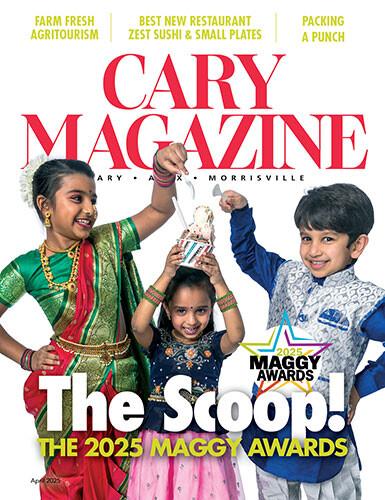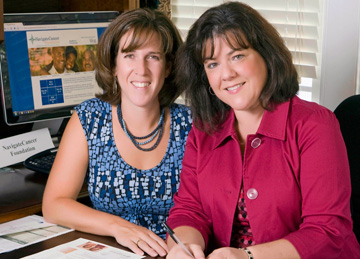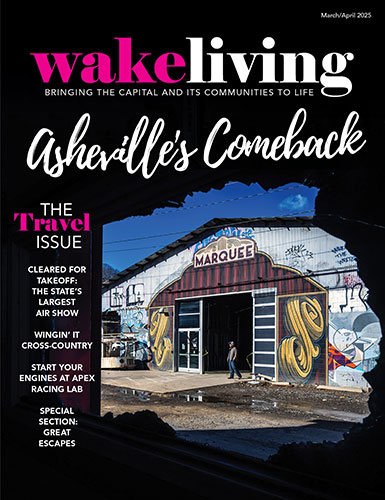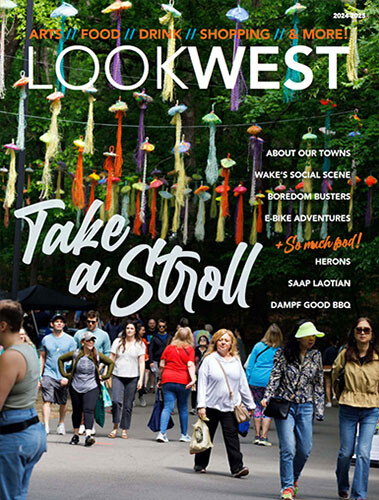Sharon Bigelow spent more than 25 years as an oncology nurse practitioner in Texas and most recently with Duke University Medical Center and the University of North Carolina Hospital.
When her career began, patients spent upward of three hours at an appointment when they learned they had some form of cancer. That time was used to explain specifics about the disease and treatment options.
As time went along and health care providers became more inundated with patients, that appointment decreased to less than 30 minutes. To counteract this trend, Bigelow and her sister, Beth Roach, created the NavigateCancer Foundation, a nonprofit aimed at empowering cancer patients and their families during an extremely difficult life juncture with free, potentially life-saving information and guidance.
“I’d been talking with Beth and saying we need to do something different,” Bigelow recalled. “The paradigm for a foundation has to change. It can’t be just giving information. We have to help patients help themselves and help them to know what to do with all of this information.”
The majority of the foundation’s work is conducted online. Roach explained that patients or their families can sign up for a free, secure account on its Web site, one that’s designed and orchestrated similar to an online bank account. Bigelow then communicates with users exclusively through the foundation’s Web site. Any medical records shared by patients are submitted voluntarily. The foundation does not contact health care providers directly.
“The main thing when people come to us they say, ‘I don’t even know the questions to ask.’ They don’t know where to begin,” Bigelow said. “All we do is help to educate them and help clarify, prioritize and help them get to the right place.”
While Bigelow had the medical knowledge from years of experience, Roach brought the business development expertise.
Roach spent more than 15 years working with venture capitalists to set up every aspect of a business operation from human resources to legal compliance. Roach also spent significant time working with nonprofits and the Jimmy V Celebrity Golf Classic for Cancer Research.
“It seems like my whole career has been set up just to play right into this,” Roach said.
The sisters currently operate the foundation out of Bigelow’s home in Apex. A little more than a year into its existence, the sisters noted that it’s taken a huge leap of faith to give up high-paying careers and start a nonprofit organization in the midst of the worst economic downturn in decades.
“Clearly, we couldn’t do this without our family’s support,” said Bigelow, who is the married mother of two teenage children. Roach also is married with two children ages 6 and 8.
Cancer has hit Bigelow and Roach on a personal level, too. Their father died of colon cancer in 1995. His death was another part of the reason the sisters started the foundation.
Navigatecancerfoundation.org already boasts scores of testimonials from patients and family members from more than a dozen states. The foundation has helped users find information about paying for cancer care, methods to formulate those succinct questions for doctors and caregivers, and support for individuals whose families might be scattered in several different areas.
Some health care providers and case managers also have been coming to the foundation’s site. They’ve inquired how they can send patients and clients or find a service provider for a unique case.
The foundation’s growth has occurred primarily through Internet searches and the online cancer support community. Bigelow and Roach have spent little thus far in the way of advertising, producing only cards that are distributed by cancer-care providers in the Triangle. However, the sisters have high hopes for their foundation.
They’re looking to find a way to provide content and support in Spanish. They’re also looking to reach out into rural and underserved areas throughout North Carolina and the Southeast. Another key element is ensuring that information and guidance is the latest available, because cancer treatment evolves dramatically and rapidly.
“Cancer information is in a silo out there. It used to be that we put it together for patients. Now patients really are left putting it together for themselves,” Bigelow said.
“Our whole goal is to help (patients and families) because at the end of the day they’ve got to make sure they get the care,” she concluded.






